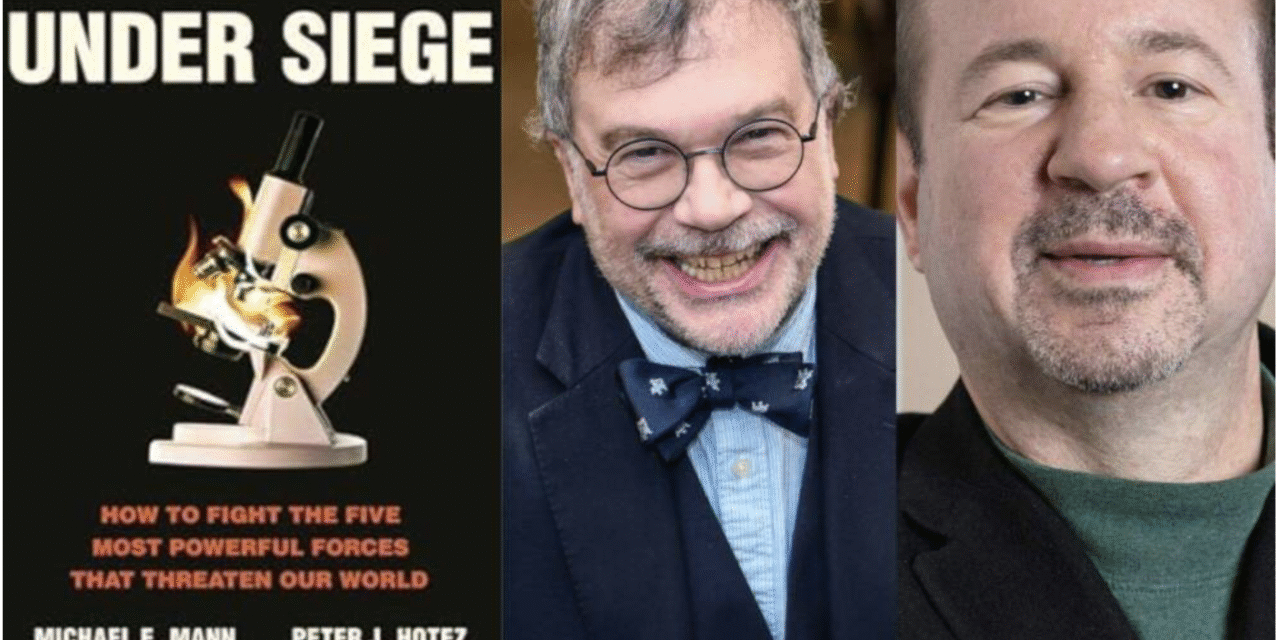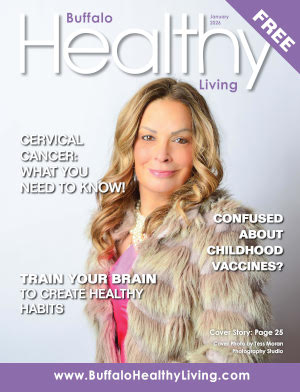The Future of Our Health: Science Under Threat

by Judith G. Fales
What will happen to my health, your health, and the health of our children and grandchildren if science is ignored and scientists are called demons, facing threats to their lives and their families’ safety? Why is this occurring? These questions are raised and addressed in the new book *Science Under Siege* written by two prominent scientists.
Michael E. Mann is a Presidential Distinguished Professor in the Department of Earth and Environmental Science at the University of Pennsylvania and serves as the director of the Penn Center for Science, Sustainability, and the Media. He is a climatologist and geophysicist. Dr. Peter J. Hotez is dean of the National School of Tropical Medicine, a professor of pediatrics and molecular virology and microbiology at Baylor College of Medicine, and the co-director of the Texas Children’s Center for Vaccine Development. If you watch Your Hometown Health Connection, produced by Buffalo Healthy Living in partnership with WBBZme-TV, you might recognize Dr. Hotez from two of our programs.
Addressing the dual threats of the climate crisis and increasingly widespread and deadly pandemics, the authors identify the main drivers of anti-science in America: billionaires funding anti-science, many of whom have become wealthy through ownership of fossil fuel companies—those responsible for most carbon emissions causing climate change; countries supported by extractive industries such as coal, natural gas, and oil, along with the politicians they influence; professionals spreading disinformation, including those promoting products with no proven medical benefit and those connected to fossil fuel sectors; social media propagandists and individuals claiming to be scientific experts but lacking relevant expertise; and the press, which lends legitimacy to anti-science extremists.
For me, even more than all the information I learned in this book, reading it raised essential questions that anyone who considers themselves a responsible citizen must answer. Where am I getting my information about health and climate change? Is it from the same sources—newspapers, TV, and social media—that I have always read and heard? Have I questioned whether that is genuine information or disinformation? Do I trust experts or people with no expertise but lots of money and/or charisma?
When I decide who I am voting for, have I researched how they have voted on issues that will determine the health of the human race and the survival of our planet? Will I continue to use and consume products that are harmful to the earth? Will I live in a place that can withstand the heat, storms, and droughts that will make it impossible for most people to live and work in much of the country by the end of this century?
Is there reason for hope? The answer is “yes,” if, as the authors say, “We remain focused on pushing back against the tide of anti-science and on advancing the cause of evidence-based science and science-based policy.” They suggest three efforts: expanding visibility and communication by scientists; protecting scientists, including providing legal defense for those who are attacked; and countering anti-science and disinformation by using knowledge, facts, and clear explanations, as well as regulating social media and the use of artificial intelligence. Hotez and Mann conclude the book by saying, “We fight for a livable planet, for us, our children, and future generations. Because it’s worth fighting for.”
You can purchase Science Under Siege on Amazon.com and see Dr. Hotez’s latest TV Buffalo Healthy Living show at https://youtu.be/3RfGnAEg5Ok.









